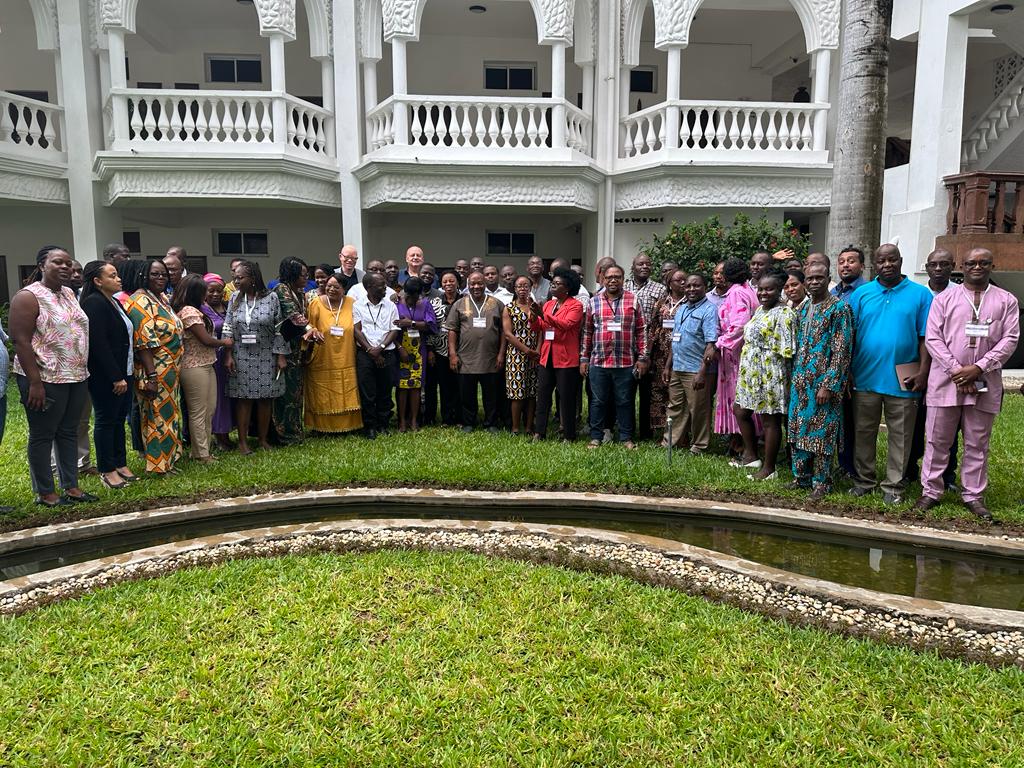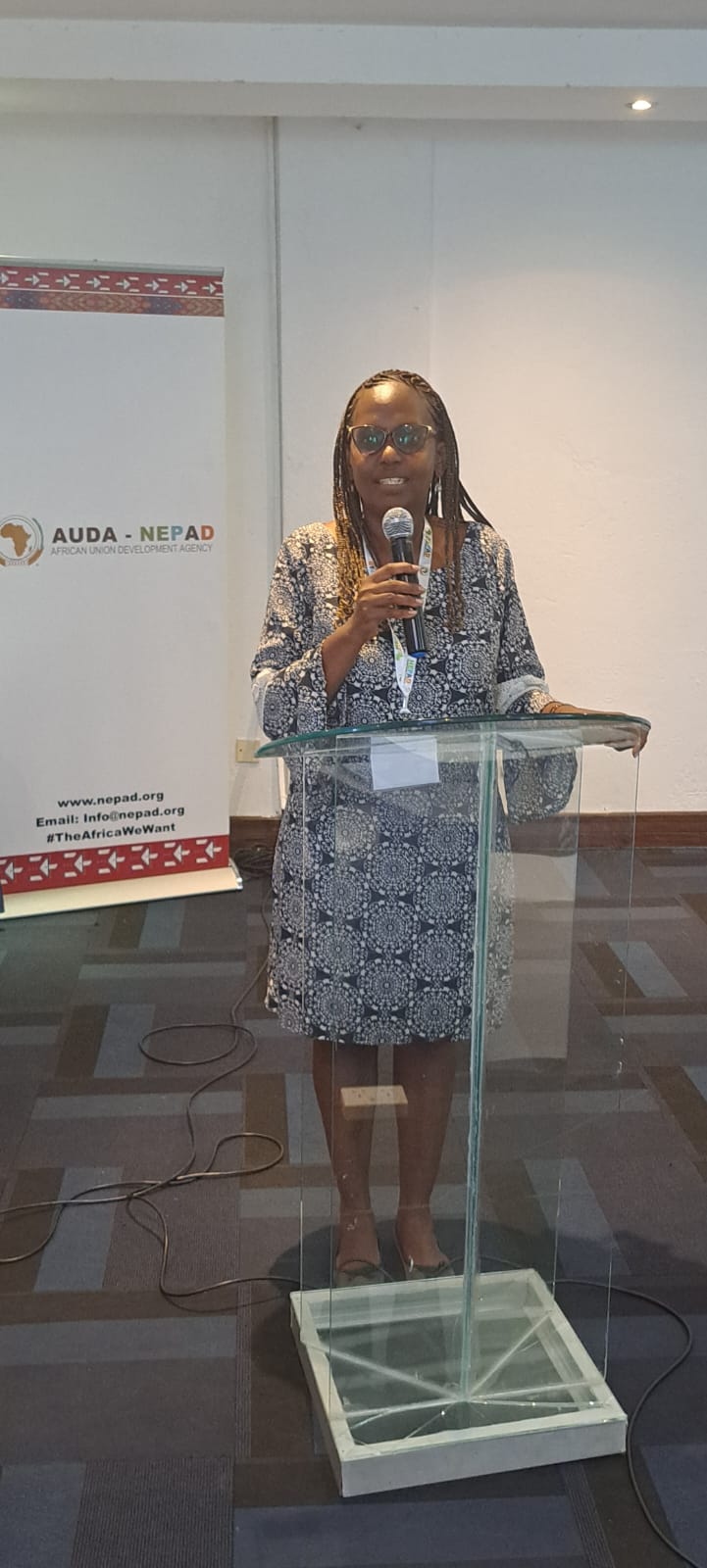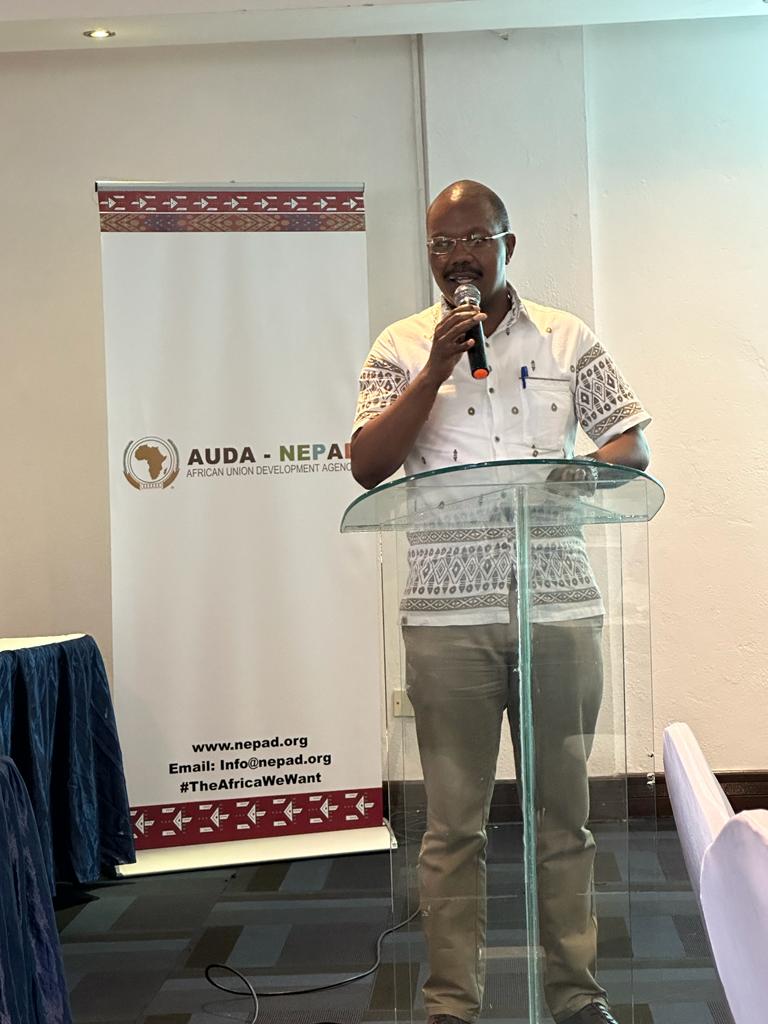|
Getting your Trinity Audio player ready…
|
MOMBASA, KENYA – With the potential that biotechnology possesses in developing crops and animals that are more resilient to climate change and risks of diseases, the adoption of genome editing sets the stage for Africa to harness new and emerging technologies to ensure food and nutrition security on the continent.
These were the sentiments of Dr. Martin Mwirigi, the Director of the Biotechnology Research Institute, speaking on behalf of the Kenya Agricultural and Livestock Research Organization (KALRO) while officially opening the African Union Development Agency (AUDA-NEPAD)’s Centre of Excellence in STI Strategic Meeting With Local, Regional Actors, International Partners, Key Constituencies and the Private Sector, running from 16-20 October 2023, in Kenya’s coastal city of Mombasa.

“This workshop comes at the right time for Africa. Agriculture has been going through several revolutions including the Green Revolution. In all this, Africa has been lagging behind. The developed countries were able to feed themselves by adapting technologies to feed themselves.
“There is a need for Africa to harness the potential of genetics in improving crops and livestock production. It’s encouraging to note that Kenya has won the first case for GM maize. It is sad to note that Africa lags behind because it is not ready for new technologies. I applaud AUDA-NEPAD for bringing Africans to speak the same language and have the same level of understanding of genome editing which can enable us to achieve Agenda 2063. Through this biotechnology, Africa can develop crops and animals that are more resilient to climate change. While Africa is at risk of having challenges with diseases, genome editing can be the solution. The stage is set for Africa to harness new and emerging technologies,” Dr. Mwirigi said.
In her welcome remarks, Mrs. Florence Nazare, the Head of AUDA-NEPAD’s Centres of Excellence Knowledge Management and Programme Evaluation Directorate emphasised the need to harness Africa’s potential including human resources.
“This meeting is meant to pool African resources so we connect to make us deliver as one. From this workshop, we are going to learn from each other what works and what does not. The collaboration brings upstream, downstream, and horizontal capabilities for sharing lessons and experiences. Data transportation is important. We will advocate and communicate genome editing in a way that enables Africa to move as a collective,” Mrs. Nazare said.
Rebecca Arunga, the Deputy Director of NEPAD/African Peer Review Mechanism (APRM) Kenya Secretariat said the technology has raised some social questions that can only be addressed by coming up with ways to foster a broader understanding of modern biotechnology focusing on Genome Editing among different stakeholder groups through communication and advocacy for enhanced uptake of the tool to optimize agriculture in Africa and also broadly in the realization of Agenda 2063.

“During this meeting, we will be able to document some best practices through peer learning and accelerate our understanding of how to package this new technology. The NEPAD/APRM Kenya Secretariat remains committed to continuously supporting the coordination and facilitation of all AUDA NEPAD programmes and projects in Kenya and is at the forefront of championing the implementation of the African Union Agenda 2063. The agenda has the element of transforming African agriculture to enable the continent to feed itself and be a major player as a key net exporter.
“I encourage the participants in this workshop, to work tirelessly in providing information that can assist in enriching the Genome Editing communication and advocacy strategy. Your input is valuable,” Arunga said.
She encouraged the AUDA NEPAD to fast-track the establishment of the Centre of Excellence on Human Capital and Institutions Development which is one of the five centres of excellence they have plans to set up in Nairobi, Kenya so that it can establish Research and Development units to drive new innovations on food production and industrialization.
